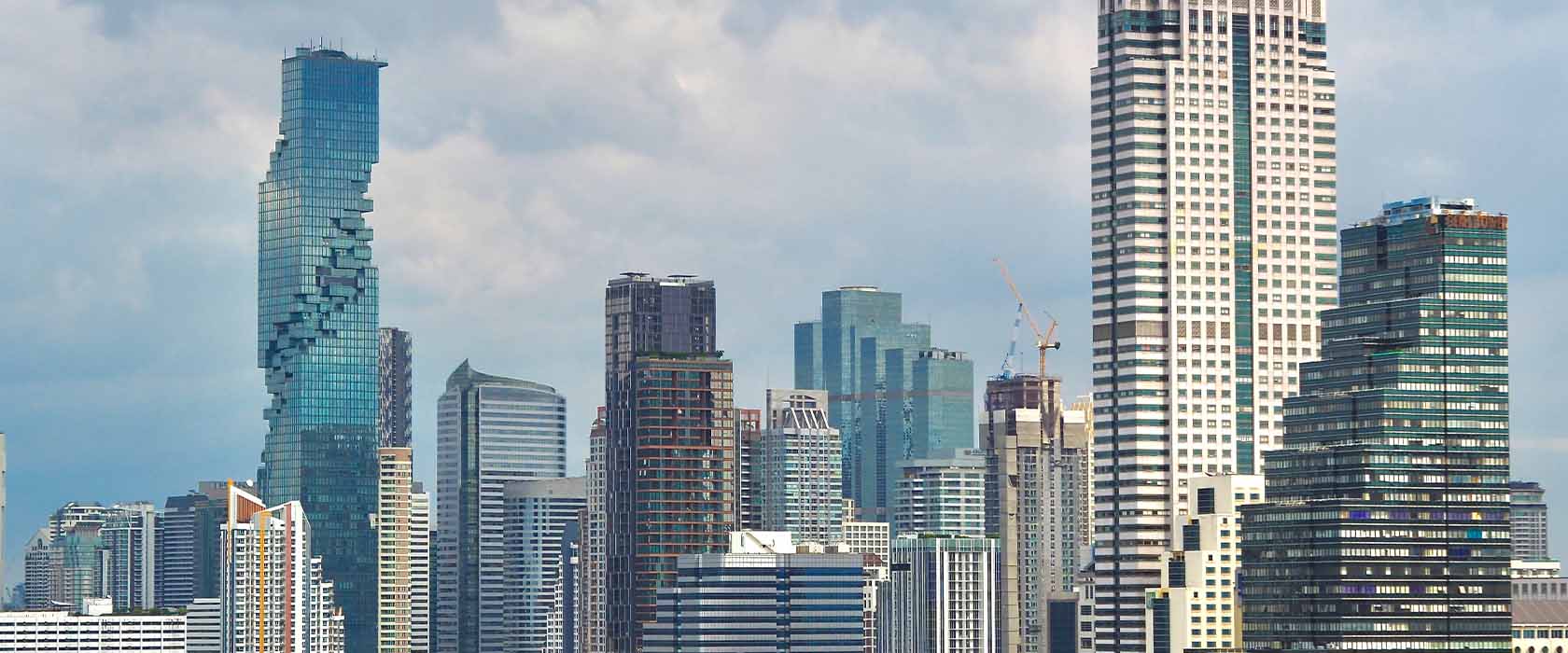-
Popular search terms
A Comprehensive Guide to Studying in:
Thailand

It’s getting increasingly difficult to find somewhere to study with that golden combination of affordability and quality. In Thailand, you might have just found it.
The number of international students in “The Land of the Free” has been steadily increasing in recent years, and the country now hosts around 30,000 students from abroad. They’re attracted by Thailand’s low tuition fees, which are a fraction of what you might pay in Europe, North America and even elsewhere in Asia.
But international students are also attracted by the country’s burgeoning reputation for business education, which is now reflected in global rankings. Thailand had three business schools in the top 200 of the QS Global MBA Rankings 2023, putting it on par with Asia’s leading countries.
Throw in a tropical climate, jaw-dropping natural scenery and a low cost of living, and you’ve found yourself the perfect place to study.

Frequently Asked Questions
FAQ
Did You Know? Fun Facts About Thailand
- 1 Muay Thai is the national sport in Thailand, and children begin learning it from a young age.
- 2 The Thai language has 76 different letters and five different tones, making it a challenging language to learn for Westerners.
- 3 Pad Kra Pow is the most popular dish in Thailand. It’s a spicy stir fry traditionally served with chicken or pork.
- 4 The biggest industries in Thailand include manufacturing, tourism and agriculture.
- 5 Thailand’s King Rama IX was once the world's longest reigning monarch. He was famous for many things, including composing songs on the saxophone.
Which Visas & permits do i need in Thailand
To study an MBA in Thailand you’ll need to apply for a Non-Immigrant ED Visa. Depending on your country of citizenship, you may be able to apply for the visa online through the Thai E-Visa website. You’ll need the following documents when you apply:
- A passport that is valid for at least six months.
- A photograph of the applicant taken within the last six months.
- The acceptance letter or confirmation of enrollment from your university.
- Academic certificates from your previous studies.
You may also need to provide proof of health insurance and proof that you can financially support yourself while in Thailand. It’s worth contacting your local Thai embassy to find a full list of requirements, as they largely depend on your home country.
When you’re accepted at a university, they will normally provide you with most of the documents you need to apply for a visa. Here’s some more information about the Non-Immigrant ED Visa.
Banking in Thailand
Banks in Thailand tend to have different rules from branch to branch, but to open a bank account in the country you will typically need to visit a branch in person with the following documents:
- A form of ID.
- Proof of Thai residence.
- Acceptance letter from your university.
Most high-street banks offer expat-friendly accounts to cater for the country’s large expat population. The biggest banks in Thailand include Bangkok Bank, Kasikorn Bank and Krungthai Bank.
What do I need to know about healthcare in Thailand
Although Thailand has a free public healthcare system for citizens and permanent residents. Therefore, international students in Thailand will need private medical insurance that covers the length of their stay in the country. You’ll need to arrange private health insurance before arriving in Thailand, as it may form part of your student visa application.
Some of the best private healthcare providers for international students in Thailand include Allianz, Bupa, Dhipaya and Cigna.
Housing options for students in Thailand
According to figures from Numbeo, a one-bedroom apartment in the city center will cost around USD$400 per month. This is likely to be lower outside city centers and in more rural areas of Thailand.
The most popular real estate websites in Thailand include DDproperty, Hipflat and Thailand-Property.
What are the public transport options in Thailand
Thailand’s biggest cities – particularly Bangkok – are well-served by public transport. A one-way ticket costs around USD$0.86, while a monthly pass will set you back around USD$30. Outside of Thailand’s major cities, however, you may find public transport somewhat lacking.
Thailand is a huge country, and to travel across the country it’s probably easiest to fly. Internal flights are relatively affordable and most of the country’s major urban centers have airports.
How much does a Big Mac cost in Thailand
The Big Mac Index is an informal way of comparing the purchasing-power parity (PPP) of different countries. A Big Mac costs 128 baht in Thailand and $5.15 in the United States. The difference between this exchange rate and the actual exchange rate suggests that the baht is undervalued by 32.1%.
For a single person, the estimated monthly living costs in Thailand are around $527, excluding rent.